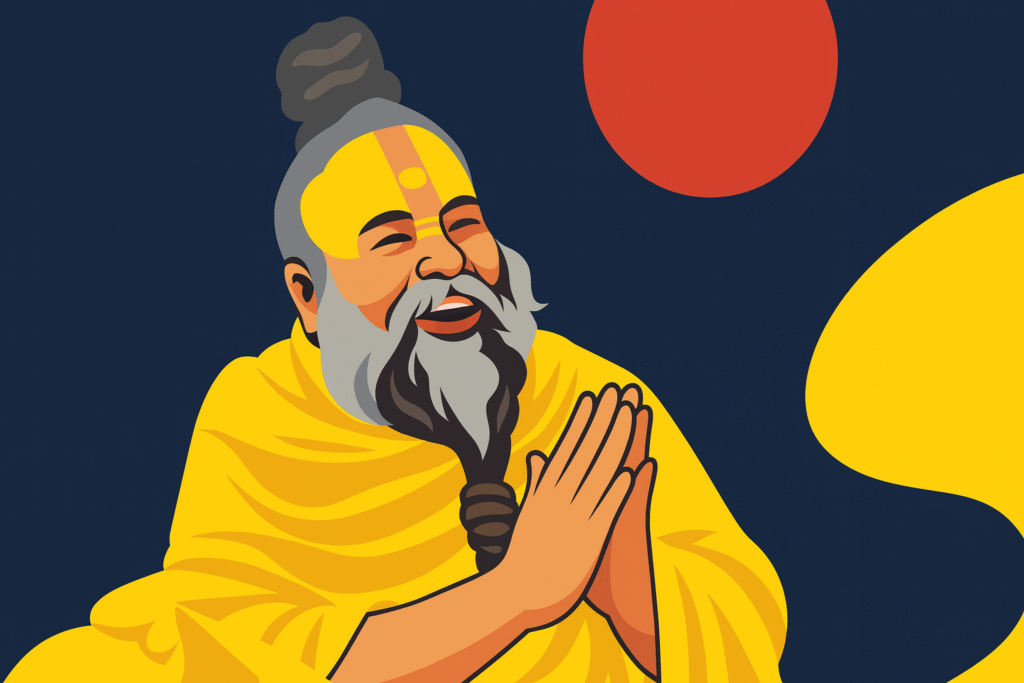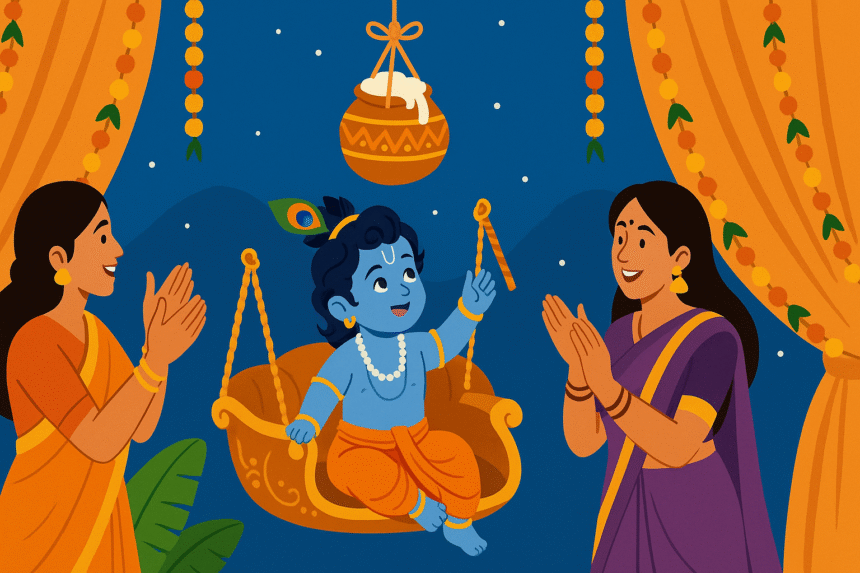Janmashtami 2025 falls between August 15–17, sparking debate. Here’s the auspicious date, shubh muhurat, and why timing matters for Krishna devotees.
If Lord Krishna were scrolling social media right now, even he might smirk at the “Janmashtami confusion” filling everyone’s feeds.
- Janmashtami 2025 falls between August 15–17, sparking debate. Here’s the auspicious date, shubh muhurat, and why timing matters for Krishna devotees.
- Why Three Dates for One Festival?
- Breaking Down the Tithi Science
- 2025 Timeline for Devotees
- Shubh Muhurat (Main Celebration)
- The Ritual Flow
- Why Dates Differ—A Cultural View
- Modern Twist to a Timeless Festival
- Janmashtami Beyond India
- What’s Non-Negotiable?
- Quick Facts Recap
- Why This Matters
- Whether on the 15th, 16th, or 17th—Krishna will still be stealing hearts and butter.
- Suggested Related Post
Why Three Dates for One Festival?
In 2025, Janmashtami seems to be having an identity crisis—some say August 15, others swear by August 16, and a few traditionalists insist it’s August 17.
So, who’s right? Well… in true Krishna style, the answer depends on which “leela” you follow—Vaishnav or Smarta traditions.
Breaking Down the Tithi Science
The festival marks Krishna’s birth at midnight on Ashtami tithi during the Bhadrapada month (Krishna Paksha). The calculation depends on when Ashtami aligns with Rohini Nakshatra.
- Smarta Janmashtami: Celebrated when Ashtami and Rohini are observed during the night hours for the householders.
- Vaishnav Janmashtami: Followed by ISKCON and Vaishnav sects, based on lunar alignment rules and often a day later.
2025 Timeline for Devotees
- August 15, Friday: Some northern states and certain temples may observe early celebrations.
- August 16, Saturday: Likely the main date for most Smarta followers.
- August 17, Sunday: Vaishnav sect celebrations, especially in Mathura and Vrindavan.
Shubh Muhurat (Main Celebration)
The midnight puja muhurat is the festival’s soul:
- Puja timing: 11:55 PM to 12:41 AM (next day)
- Duration: 46 minutes
- Nishita Kaal: This is when Krishna is believed to have taken birth, making it the peak of divine energy.
The Ritual Flow
- Morning fasting vow: Devotees begin nirjala or phalahar fasts.
- Day-long bhajans: Songs that tell the tales of Gokul and Vrindavan.
- Swinging the Laddu Gopal idol: Decorated cradles (jhulas) symbolize Krishna’s arrival.
- Midnight aarti: The climax with conch shells, temple bells, and chants of “Nand ke anand bhayo.”
Why Dates Differ—A Cultural View
It’s not confusion—it’s diversity.
India’s regions interpret tithi and nakshatra differently. Astrology plays a role, but so do age-old customs and local traditions.
Modern Twist to a Timeless Festival
In cities, temples live-stream Janmashtami celebrations. Instagram feeds flood with baby Krishna photo contests. ISKCON temples host cultural shows, dance dramas, and prasadam feasts.
Janmashtami Beyond India
From London to New York, Krishna temples see massive crowds. Global devotees follow ISKCON’s date, making it one of the most internationally celebrated Hindu festivals.
What’s Non-Negotiable?
No matter the date, the vibe remains:
- Devotion in every chant.
- Discipline in fasting.
- Delight in sharing prasadam.
Quick Facts Recap
| Aspect | Details |
|---|---|
| Main dates | Aug 15, Aug 16, Aug 17 |
| Key tithi | Ashtami of Krishna Paksha, Bhadrapada month |
| Peak muhurat | 11:55 PM–12:41 AM |
| Traditions | Smarta & Vaishnav |
| Symbol | Swinging Laddu Gopal idol |
Why This Matters
The beauty of Janmashtami lies in its flexibility—it’s about shraddha (faith), not just the calendar.
Krishna wouldn’t want us arguing over dates; he’d want us dancing to the sound of his flute.
Whether on the 15th, 16th, or 17th—Krishna will still be stealing hearts and butter.
💬 Tell us—when are you celebrating Janmashtami this year?
📤 Share this with your Krishna-loving friends.
🌸 Follow us for more festive date explainers and cultural deep dives.
Suggested Related Post
You might also like: Bel Patra in Sawan: Your 3-Leafed Shortcut to Shiva’s Blessings & Lakshmi’s Wealth













